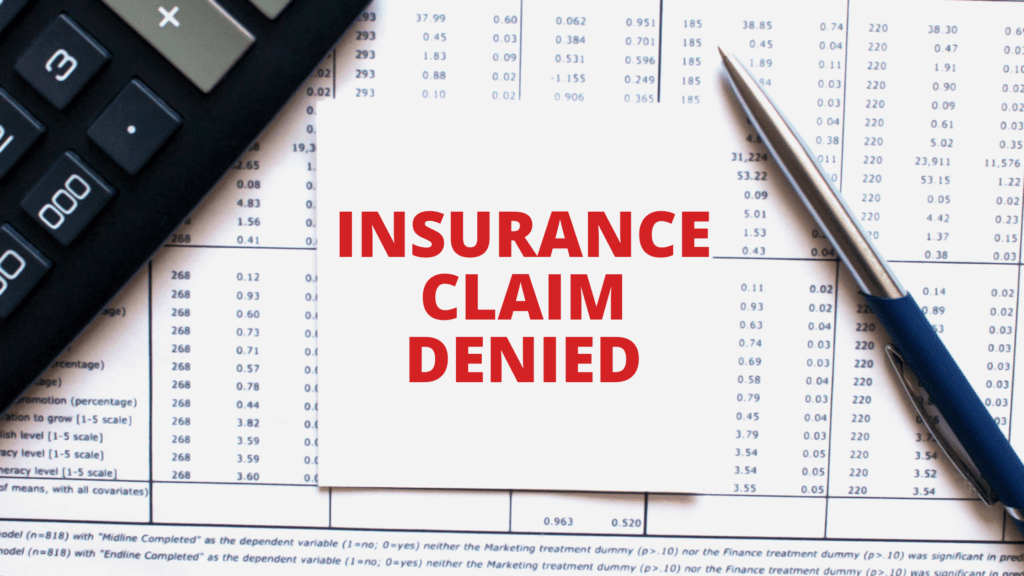
Filing an insurance claim is typically a straightforward process aimed at providing financial support during challenging times. However, there may be instances where your insurance claim is denied, leaving you feeling frustrated and uncertain about what steps to take next. In this blog, we’ll explore the reasons behind claim denials and provide a comprehensive guide on what to do if you find yourself in this situation.
Understanding Claim Denials:
Insurance claim denials can happen for various reasons, and it’s crucial to understand why your claim was rejected. Common reasons include:
- Policy Exclusions: Your claim may fall outside the scope of coverage outlined in your policy.
- Documentation Errors: Incomplete or inaccurate information in your claim documentation can lead to denials.
- Missed Deadlines: Failing to file your claim within the stipulated timeframe can result in denial.
- Lack of Pre-authorization: Certain types of claims require pre-authorization, and neglecting this step may lead to denial.
- Insufficient Evidence: Inadequate evidence or documentation to support your claim may result in denial.
What to Do If Your Claim is Denied:
- Review the Denial Letter:
- Carefully read the denial letter provided by your insurance company. It should outline the specific reasons for the denial.
- Understand Your Policy:
- Refer to your insurance policy to understand the terms, conditions, and exclusions. Make sure the denial aligns with the terms outlined in your policy.
- Contact Your Insurance Provider:
- Reach out to your insurance company to discuss the denial. Seek clarification on the reasons and ask for specific information on how to address the issues.
- Provide Additional Information:
- If your claim was denied due to insufficient evidence, work with your healthcare provider, repair shop, or relevant parties to gather the necessary documentation and resubmit your claim.
- Appeal the Decision:
- Most insurance companies have an appeals process. If you believe your claim was wrongly denied, submit a formal appeal. Clearly outline the reasons for your disagreement and provide any additional documentation that supports your case.
- Seek Professional Advice:
- If the appeal process is unsuccessful or seems complex, consider seeking advice from a legal professional or a public adjuster. They can guide you through the process and help present your case effectively.
- File a Complaint:
- If all else fails, you can file a complaint with your state insurance department. They can investigate your case and help mediate a resolution.
- Explore Alternative Dispute Resolution:
- Some insurance policies include provisions for alternative dispute resolution methods, such as mediation or arbitration. Explore these options if available.
Conclusion:
Facing a denied insurance claim can be challenging, but it’s essential to approach the situation calmly and systematically. By understanding the reasons behind the denial, reviewing your policy, and following the appropriate steps, you can increase the chances of overturning the decision or finding an alternative resolution. Remember, persistence and a clear understanding of your rights are key when dealing with denied insurance claims.




